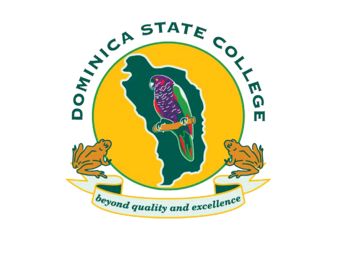Dominica State College offers a variety of engaging and practical short courses designed to enhance skills and knowledge in a range of fields for students and professionals alike.
Click Here To Register
Our courses are usually 6-8 weeks. When a course pushes into 3 months, we classify it as a
training. If it is just 1 or 2 days, it’s a workshop. We tend to push for 3 hours a week of teaching-
contact time
A class runs for 1.5 or 2 hours, twice weekly. If the class is once a week, then there is a full 3-
hour session.
Classes are open to adult learners. When participants under 18 request to be enrolled, parental
permission must be given.
Unless stated, participants are not required to show proof of grades such as CXC. But there are
courses by their very nature which need certain pre-requisites. Phlebotomy is a great example
of this, where some background in science is important.
Short Courses are usually $300 at a basic introductory level. Courses with Practicals tend to
have a minimum $50 additional fee towards resources. Intermediate Courses are usually $400.
Longer, more intense courses, such as Welding, Phlebotomy and Home Care Management can
cost between $800-$1500.
Participants are encouraged to discuss with the Bursar’s Office the possibility of a payment
arrangement.
Certificates are not issued until completion of payment.
While it varies from course to course, the standard tests, quizzes, presentations etc are utilized.
Projects, demonstrations, displays are also grading mechanisms.
In addition, attendance is taken at every class, and this informs the instructors’ overall
assessment process.
A Certificate of Achievement is given for those who have successfully passed the components
of the course. A Certificate of Participation, is considered for those who may have had certain
challenges and thus, could not fulfil all expectations, yet illustrated genuine interest and
willingness to learn.
We are happy to say yes. We have heard back from Participants who have even travelled and
presented their certificates, and were delighted that it was deemed acceptable or contributed to
some form of employment locally. We are always ready to provide a grade break-down, Course
Outline detailing the topics covered, for anyone who needs it along with the Certificate for
presentation to an institution. But of course, remember, Short Courses are Short Courses. It’s
not a diploma.
Don’t be afraid to inquire from us regarding specific courses.
Credit
Besides the incentive of learning something new, and having the certificate to prove it, there is
the advantage of Credit into one of our DSC programs. For example, if someone now wants to
study Plumbing at DSC, and he/she has done Intermediate Plumbing as a Short Course, credit
would be given for exemption from relevant plumbing classes and the wider Plumbing Program.
PLAR
While especially for Intermediate and Advanced classes the Basic Level of the DSC Short
Course (or similarly recognized course from another institution), prior learning/work experience
is considered for enrollment into the course.
Welcome Back
If you have been away from the classroom for some time, and you are considering pursuing
studies again, Short Courses are a great way to ease you back into a learning environment.
All instructors selected are qualified in their fields, and trainings are held before start of classes
to prepare them for interacting with adult learners. Instructors are DSC faculty and in some
cases from the industry or with our overseas partners.
While we welcome all who want to learn, classes with practicals are limited to 12 – 15
participants, in keeping with Industry Standards.
Classes, especially theory, are held online or on the DSC campus. Practicals are held at DSC
workshops or appropriate venues that the college makes an arrangement with.
This is usually held once a year—although COVID-19 impacted this. Certificates are given,
reflections shared and refreshments enjoyed.

